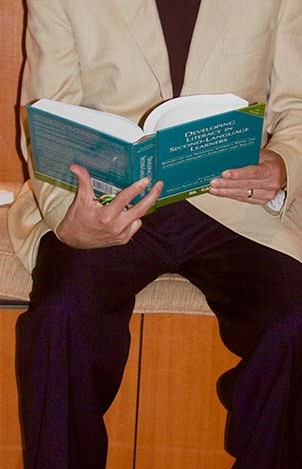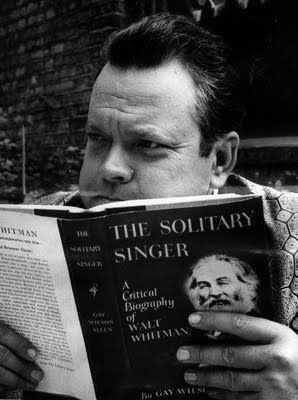Literacy Blogs
- All
- 3-cueing
- academic learning time
- academic vocabulary
- accommodations
- accountability testing
- Active View of Reading
- adolescent literacy
- afterschool programs
- alphabet
- amount of instruction
- amount of reading
- argument
- assessment
- auding
- author awareness
- automaticity
- balanced literacy
- beginning reading
- Book Buddies
- Book Flood
- challenging text
- classroom organization
- close reading
- coaching
- cohesion
- Common Core State Standards
- complex text
- comprehension strategies
- content area reading
- context analysis
- curriculum materials
- Daily 5
- decoding
- departmentalization
- DIBELS
- dictionary skills
- digital texts
- disciplinary literacy
- dyslexia
- early interventions
- effective teachers
- Emily Hanford
- executive function
- family literacy
- fingerpoint reading
- foundational skills
- graphic novels
- guided reading
- heterogeneous grouping of students
- homework
- improving reading achievement
- independent reading
- independent reading level
- informal reading inventories
- informational texts
- instructional level
- invented spelling
- jigsaw instruction
- knowledge
- leadership
- learning disabilities
- Lexiles
- linguistic comprehension
- listening comprehension
- literacy charities
- literacy policy
- literary interpretation
- main idea
- morphology
- motivation
- narrative text
- National Early Literacy Panel
- nonsense words
- oral language
- oral reading fluency
- paraphrasing
- Pause, Prompt, Praise (3P)
- personalized learning
- phonemes
- phonemic awareness
- phonics
- press and media
- principals
- prosody
- Readers' Workshop
- reading comprehension
- reading disabilities
- reading intervention
- reading levels
- reading models
- Reading Recovery
- reading research
- reading skills
- reading strategies
- reading to children
- reading wars
- reading-writing relations
- remedial reading
- rereading
- Response to Intervention
- Scarborough's Rope
- science of reading
- seatwork
- semantics
- sentence comprehension
- sequence of instruction
- set for consistency
- set for variability
- shared reading
- shared reading
- sight vocabulary
- simple view of reading
- Simple View of Reading
- small group instruction
- social studies
- sound walls
- Special Education
- speech-to-print phonics
- spelling
- stamina
- summarizing
- Sustained Silent Reading
- syllabication
- syntax
- syntax
- testing
- text complexity
- text interpretation
- text reading fluency
- text structure
- theme
- think-pair-share
- trauma
- visualization
- vocabulary
- word walls
- writing
- zone of proximal development (ZPD)
The Instructional Level Concept Revisited: Teaching with Complex Text
Boy, oh, boy! The past couple weeks have brought unseasonably warm temperatures to the Midwest, and unusual flurries of questions concerning teaching children at their, so-called, “instructional levels.” Must be salesman season, or something. One of the questions asked specifically about my colleague Dick Allington, since he has published articles and chapters saying that teaching kids with challenging text is a dumb idea. And, a couple of others queries referred to the advertising copy from Teachers College Press (TCP) about their programs. Both Dick and TCP threw the R-word (research) around quite a bit, but ...
Who Has Authority Over Meaning? Part II
In my last entry, I explored some ideas concerning what role authors play in our interpretation of text. As with many controversies in the garden of literary criticism, nothing is settled, but an exquisite tension has been created. It is this tension that mature readers need to learn to negotiate—and that we have to prepare them for. My take on this controversy is this: it is respectful, responsible, and wise to try to get back to “the author’s intended meaning.” That means we need not only to think about what a text says, but what we thought the author ...
Who Has Authority Over Meaning: Authors or Readers?
I’m often asked if the questions I publish here are “real.” That is, do teachers, really ask me these things? The questions definitely are real. Though they come to me in a variety of ways. Not long ago a colleague contacted me for my advice on a question she’d been asked. She was surprised to see that one show up on my blog. Other times, I might be giving a talk and a question comes from the audience. I remember it later and answer it again for you. This week’s “question” is ...
I get what you want us not to do, but what should we do? Getting higher test scores.
Blast from the Past: First posted on January 16, 2017; re-posted on April 11, 2018. The past two or three weeks I've received lots of testing questions and will handle some of them in future weeks. We are too close to testing season to do much this year, but perhaps reposting this advice now--when everyone is so concerned--maybe we can get some commitments for the future. Yesterday the new NAEP scores came out... few improvements. I would expect the same on most of the accountability tests. Let's really raise reading achievement for a change... next year is the year! Teacher question: I ...
Further Arguments about Too Much Testing
I hear you. Last week I posted a blog challenging the amount of testing and test preparation in American reading classes. I got smacked, metaphorically, by friend and foe alike. Some posted their concerns, many more sent them to me directly. The grumbles from past foes are the easiest to reply to. They often expressed—in passive aggressive tones—exasperation that I have “finally” woken up to the idea that testing companies are evil and that testing is a conspiracy against kids and teachers. They know because they follow Diane Ravitch’s “research.” ...
Welcome 2017: Let’s Teach, Not Test
I believe in being upfront with my readers, so let me start with a confession: I don’t hate testing. I know it is a horrible thing for a so-called “educator” to admit. It’s sort of a social disease. Perhaps someone has a 12-step program that could help me… Assessment Anonymous. Perhaps. When I was a practicing teacher working on my Master’s degree, I loved collecting tests in a big notebook. Sight word lists, multiple-choice phonics quizzes, informal reading inventories, motivation questionnaires. 3-holes punched in their left margins. ...
Does Homework Improve Reading Achievement?
Blast from the Past: This entry was originally posted on November 22, 2016 and is being reposted on October 21, 2018. The reason for this repost? Recently the New York Times published a letter from a middle-school student complaining about loss of sleep due to too many hours of homework. This blog entry is definitely pro-homework, but if followed eighth-graders would have a less burdensome experience with such assignments than is described in the Times. No homework is a bad idea in terms of kids' learning, but so is too much homework. Sometimes teachers/principals go off the deep end, wanting ...
Oral Reading Fluency is More than Speed
Letter I received: I found these troubling quotes in the Report of the National Reading Panel: "Fluency, the ability to read a text quickly, accurately, and with proper expression..." "Fluent readers can read text with speed, accuracy, and proper expression..." My dismay is due to (a) listing rate first in both statements, and (b) using "quickly" and "with speed" rather than "rate" (or "appropriate rate" as in the CCSS fluency standard). I wonder if this wording may have encouraged folks who now embrace the notion that "faster is better" (e.g. "better readers have higher DIBELS scores--wcpm") In my own work I often refer to Stahl & Kuhn (2002) ...
An Argument about Independent Reading Time During the School Day
Last week I answered a teacher’s question about free reading time during the school day and its relationship to reading motivation (e.g., making kids like reading). I pointed out that such reading time has a rather weak relationship with learning (various kinds of instruction exert about an 800% greater influence on learning than on having kids reading on their own during the school day) and that the connection with motivation appears to be even more tenuous. I then compared the DEAR/SSR practice unfavorably with theories and research on what motivates human beings. Not surprisingly that generated much comment. Although the following ...
Does Independent Reading Time During the School Day Create Lifelong Readers
Blast from the Past: This entry was first published on October 4, 2016 and was reissued on February 29, 2016. The reason for revisiting this one is the steady accumulation of new research data supporting my original contentions. The latest studies are reporting that independent reading can have positive impacts on learning, but that these payoffs take a very long time to manifest and are quite small (Eklund & Torpa, in press). Studies are also showing that reading achievement has a decidedly bigger impact on motivation than the other way around (Hebbecker, Förster, & Souvignier, 2019). Teacher question: You have attacked DEAR ...









